2025 Calendar Week Numbers: A Comprehensive Guide
2025 Calendar Week Numbers: A Comprehensive Guide
Related Articles: 2025 Calendar Week Numbers: A Comprehensive Guide
- SSC Exam Calendar 2025: A Comprehensive Guide For Aspirants
- Printable 2025 Calendar Showing Bank Holidays
- Pasco Wa School Calendar 2025
- WDW 2025 Crowd Calendar: A Comprehensive Guide For Planning Your Disney World Vacation
- The 2025 UTP Calendario: A Comprehensive Guide
Introduction
In this auspicious occasion, we are delighted to delve into the intriguing topic related to 2025 Calendar Week Numbers: A Comprehensive Guide. Let’s weave interesting information and offer fresh perspectives to the readers.
Table of Content
Video about 2025 Calendar Week Numbers: A Comprehensive Guide
2025 Calendar Week Numbers: A Comprehensive Guide
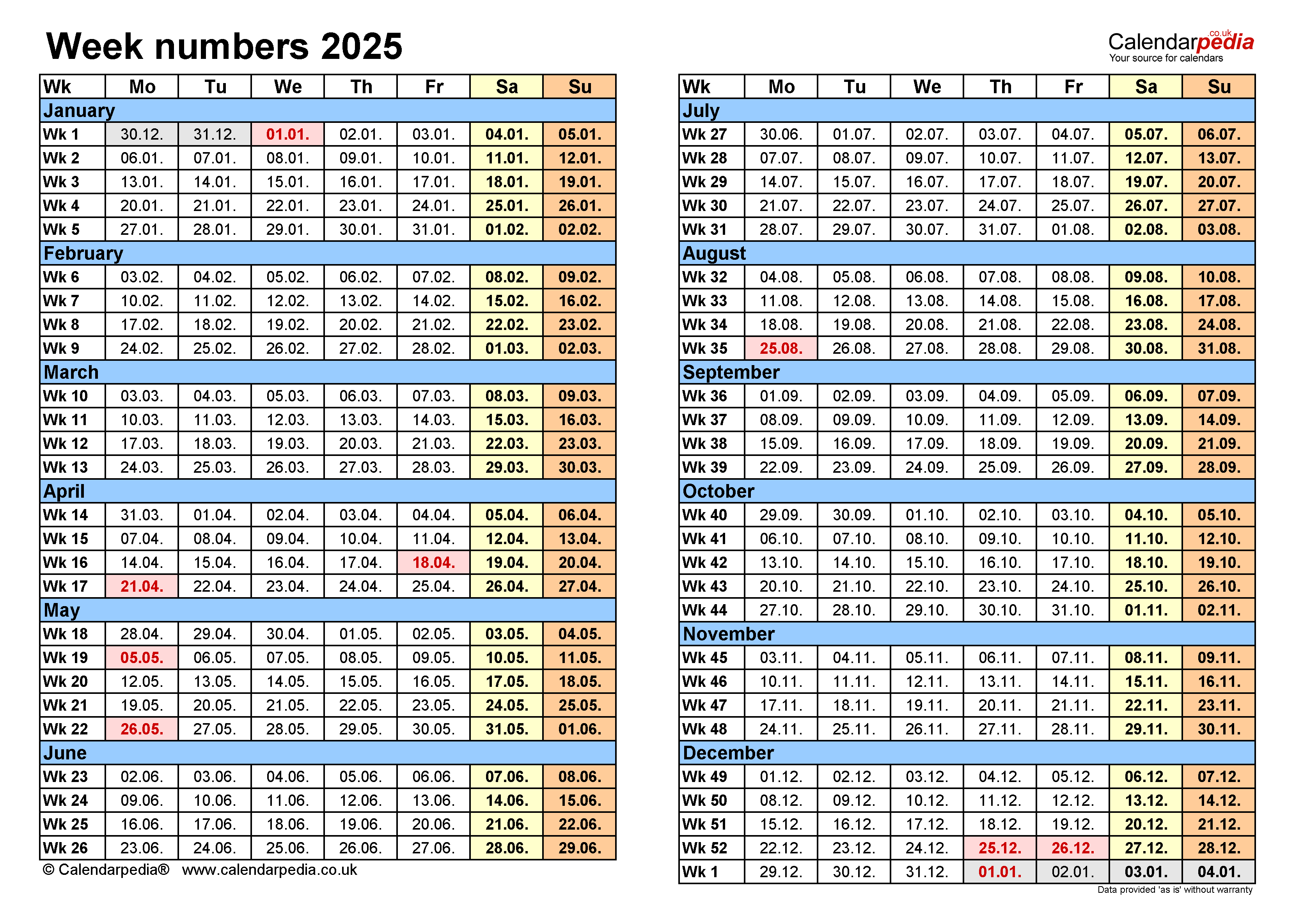
Introduction
Calendar week numbers are a convenient way to track the progress of the year. They are used in many countries around the world, including the United States, Canada, and the United Kingdom. Week numbers can be especially helpful for businesses and organizations that need to plan their activities in advance.
The 2025 calendar year will have 53 weeks. The first week of the year will begin on Sunday, January 5th, and the last week of the year will end on Saturday, December 27th.
How to Find the Week Number
There are a few different ways to find the week number for a given date. One way is to use a calendar that includes week numbers. Many online calendars and apps will display week numbers by default.
Another way to find the week number is to use a formula. The formula is as follows:
Week number = (Day of the year - 1) ÷ 7 + 1For example, to find the week number for January 10, 2025, we would use the following formula:
Week number = (10 - 1) ÷ 7 + 1 = 2Therefore, January 10, 2025 is in week 2 of the year.
Week Numbers and Holidays
In the United States, the following holidays are always observed on a Monday:
- New Year’s Day
- Memorial Day
- Independence Day
- Labor Day
- Thanksgiving Day
- Christmas Day
If one of these holidays falls on a Sunday, it is observed on the following Monday. If one of these holidays falls on a Saturday, it is observed on the preceding Friday.
Week Numbers and Fiscal Years
Many businesses and organizations use fiscal years instead of calendar years. A fiscal year is a 12-month period that does not necessarily start on January 1st.
When a fiscal year does not start on January 1st, the week numbers will not align with the calendar year week numbers. For example, if a fiscal year starts on April 1st, the first week of the fiscal year will be week 14 of the calendar year.
Conclusion
Calendar week numbers are a useful tool for tracking the progress of the year. They can be used for a variety of purposes, including planning, scheduling, and budgeting.
The 2025 calendar year will have 53 weeks. The first week of the year will begin on Sunday, January 5th, and the last week of the year will end on Saturday, December 27th.
There are a few different ways to find the week number for a given date. One way is to use a calendar that includes week numbers. Another way is to use a formula.
Week numbers can be especially helpful for businesses and organizations that need to plan their activities in advance. They can also be used to track the progress of projects and deadlines.
Week Numbers for 2025
The following table shows the week numbers for the 2025 calendar year:
| Week Number | Start Date | End Date |
|---|---|---|
| 1 | January 5 | January 11 |
| 2 | January 12 | January 18 |
| 3 | January 19 | January 25 |
| 4 | January 26 | February 1 |
| 5 | February 2 | February 8 |
| 6 | February 9 | February 15 |
| 7 | February 16 | February 22 |
| 8 | February 23 | March 1 |
| 9 | March 2 | March 8 |
| 10 | March 9 | March 15 |
| 11 | March 16 | March 22 |
| 12 | March 23 | March 29 |
| 13 | March 30 | April 5 |
| 14 | April 6 | April 12 |
| 15 | April 13 | April 19 |
| 16 | April 20 | April 26 |
| 17 | April 27 | May 3 |
| 18 | May 4 | May 10 |
| 19 | May 11 | May 17 |
| 20 | May 18 | May 24 |
| 21 | May 25 | May 31 |
| 22 | June 1 | June 7 |
| 23 | June 8 | June 14 |
| 24 | June 15 | June 21 |
| 25 | June 22 | June 28 |
| 26 | June 29 | July 5 |
| 27 | July 6 | July 12 |
| 28 | July 13 | July 19 |
| 29 | July 20 | July 26 |
| 30 | July 27 | August 2 |
| 31 | August 3 | August 9 |
| 32 | August 10 | August 16 |
| 33 | August 17 | August 23 |
| 34 | August 24 | August 30 |
| 35 | August 31 | September 6 |
| 36 | September 7 | September 13 |
| 37 | September 14 | September 20 |
| 38 | September 21 | September 27 |
| 39 | September 28 | October 4 |
| 40 | October 5 | October 11 |
| 41 | October 12 | October 18 |
| 42 | October 19 | October 25 |
| 43 | October 26 | November 1 |
| 44 | November 2 | November 8 |
| 45 | November 9 | November 15 |
| 46 | November 16 | November 22 |
| 47 | November 23 | November 29 |
| 48 | November 30 | December 6 |
| 49 | December 7 | December 13 |
| 50 | December 14 | December 20 |
| 51 | December 21 | December 27 |
| 52 | December 28 | January 3, 2026 |
| 53 | January 4 | January 10, 2026 |
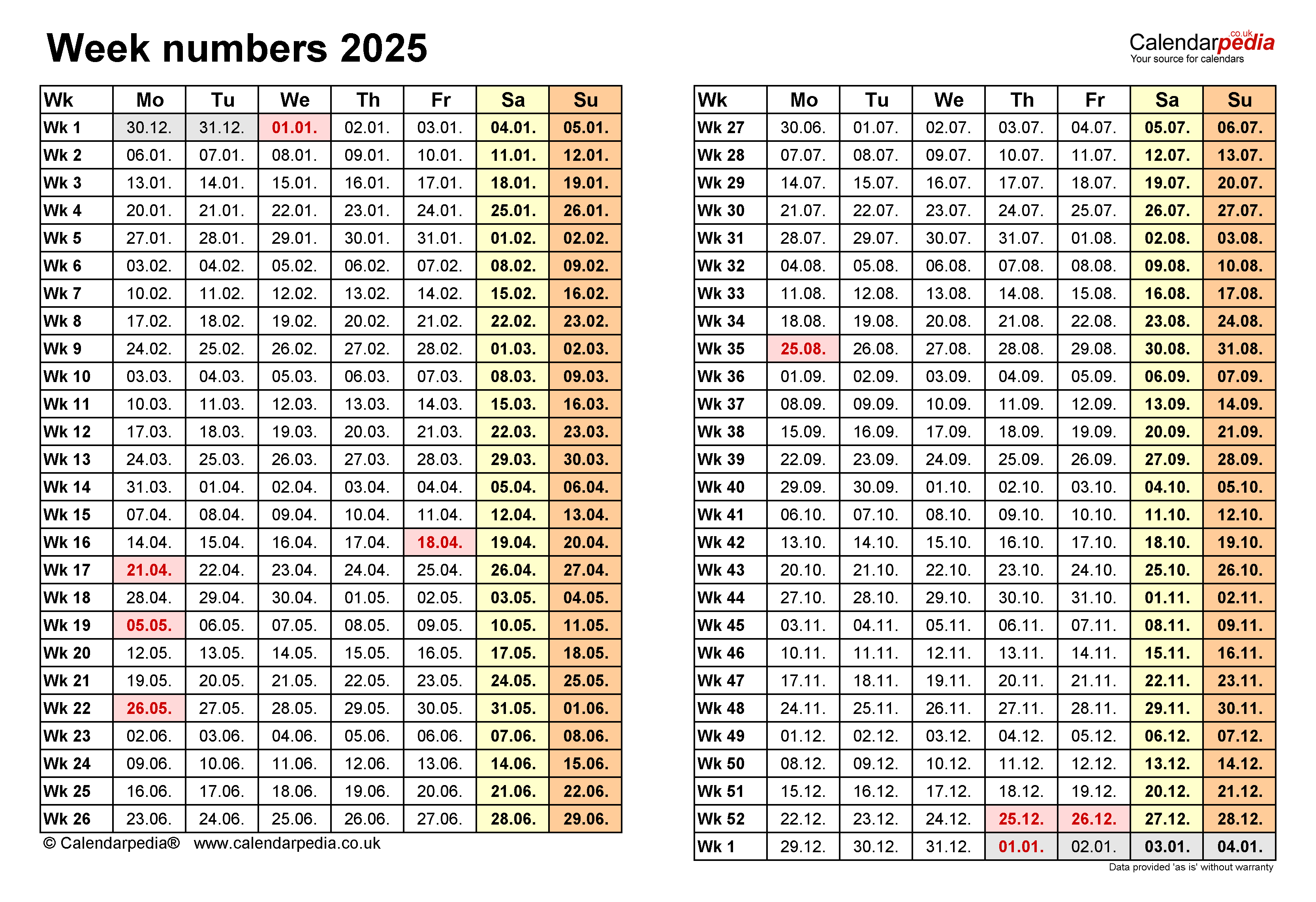

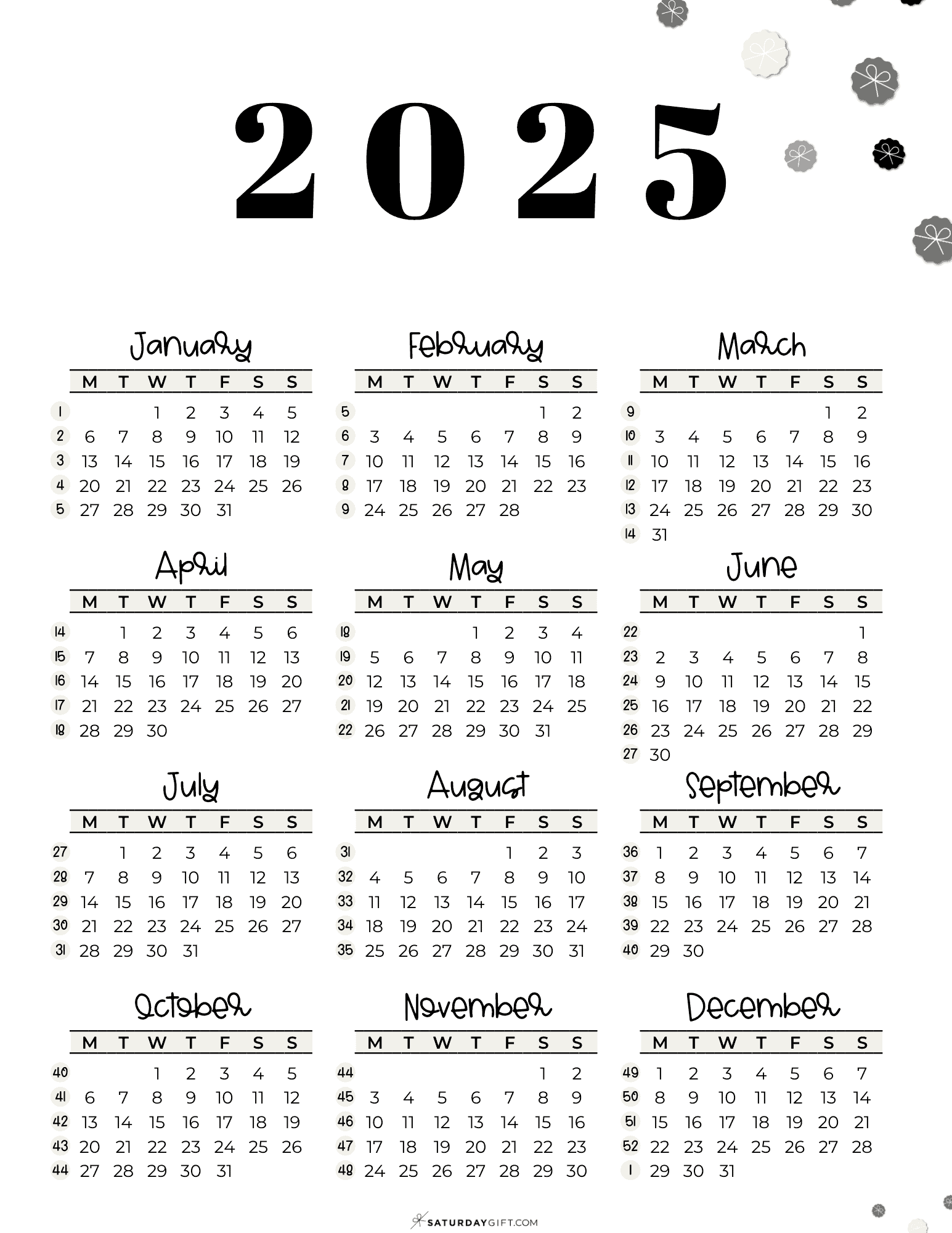
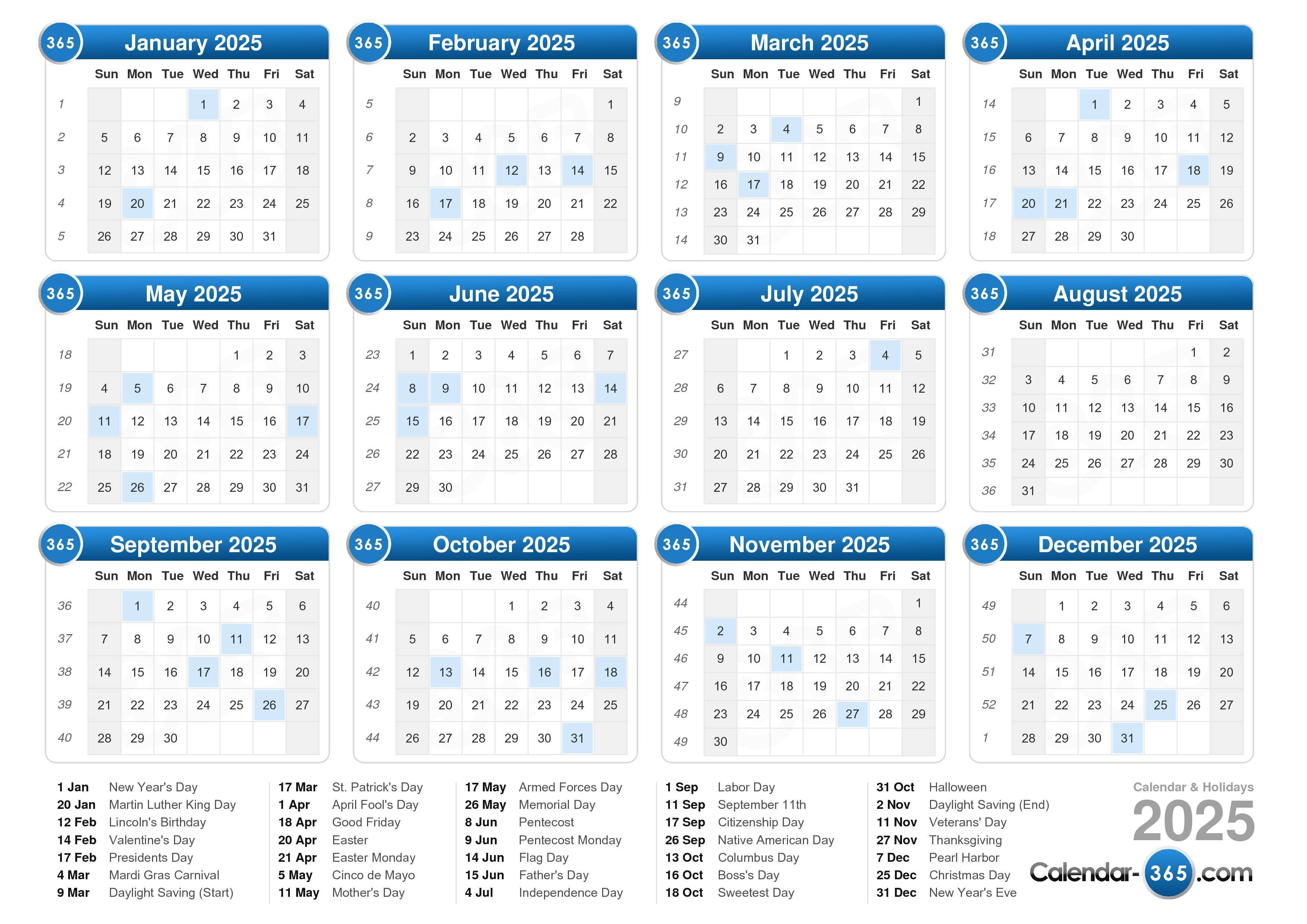

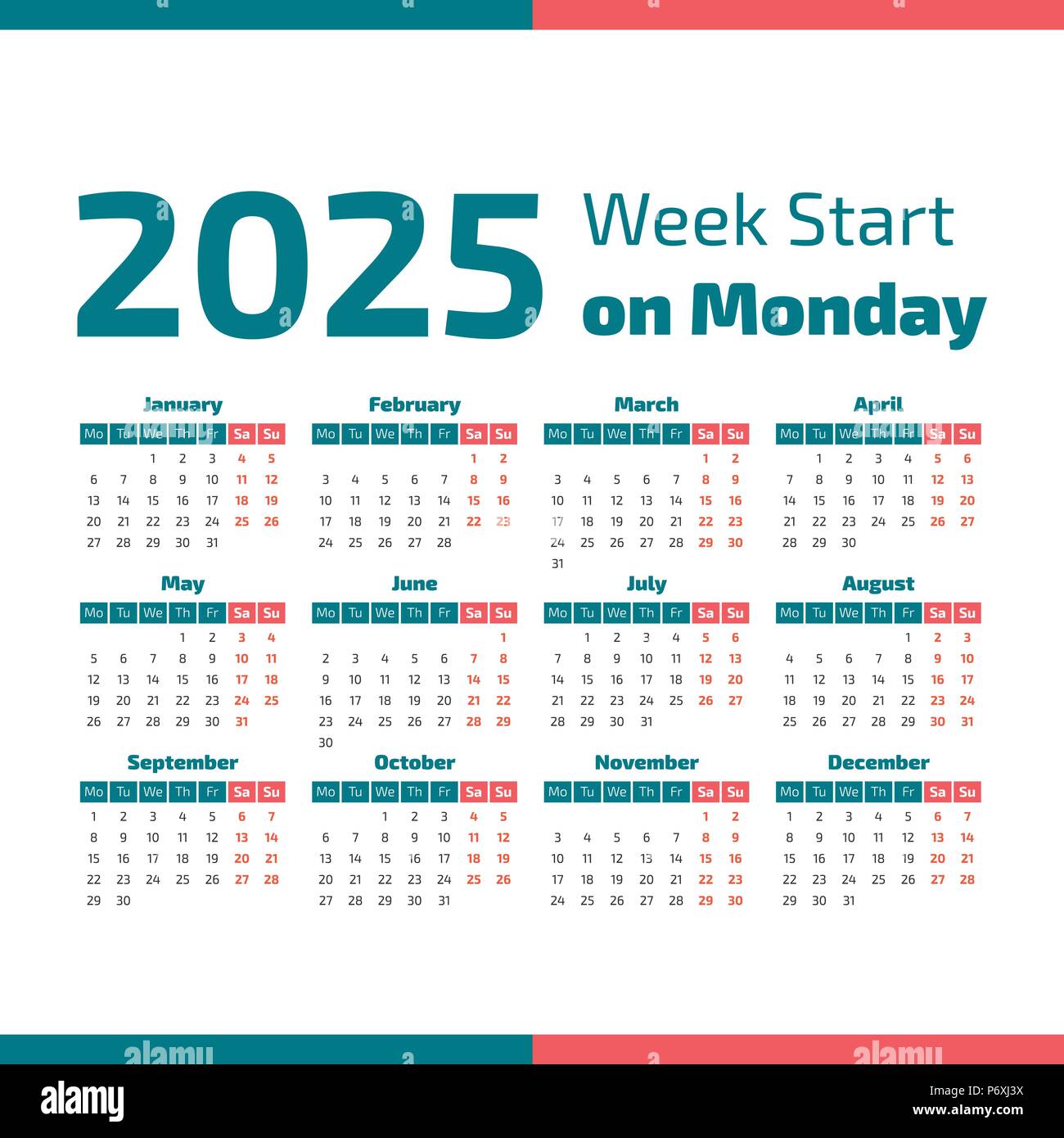
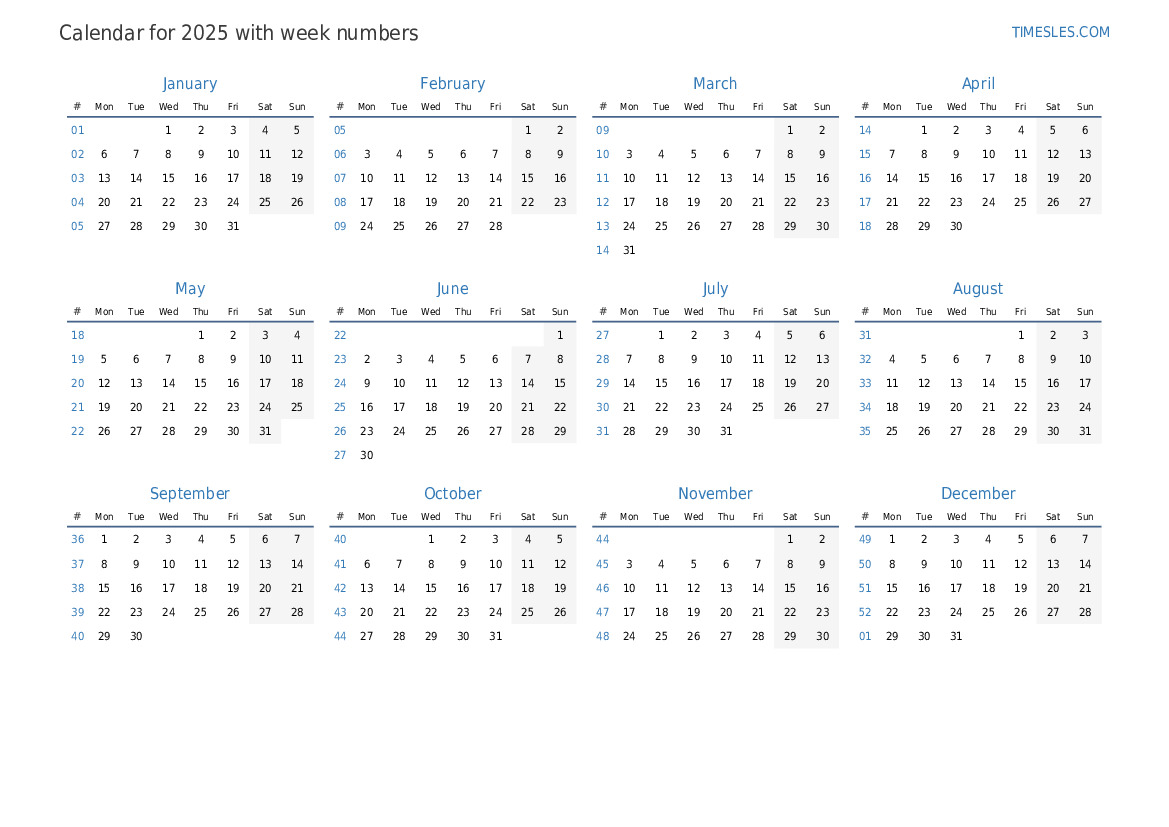

Closure
Thus, we hope this article has provided valuable insights into 2025 Calendar Week Numbers: A Comprehensive Guide. We thank you for taking the time to read this article. See you in our next article!